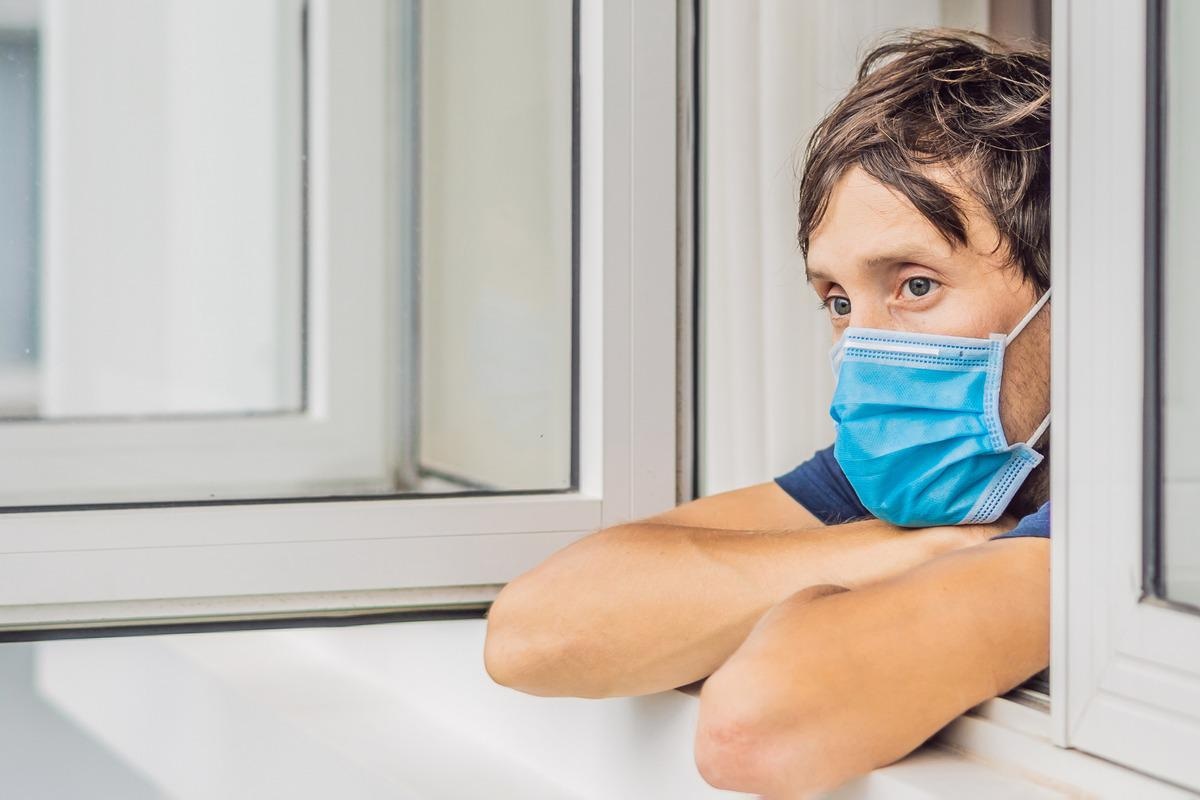Severe acute respiratory syndrome coronavirus 2 (SARS-CoV-2) has caused coronavirus disease 2019 (COVID-19) that has claimed over 5.25 million lives worldwide and continues to cause over 200,000 deaths a month. The wide range of clinical manifestations of COVID-19 are still only partially understood. Recent studies report that a large proportion of COVID-19 patients develop neuropsychiatric symptoms during or after acute infection.
 Study: Increased risk of psychiatric sequelae of COVID-19 is highest early in the clinical course. Image Credit: Elizaveta Galitckaia/Shutterstock
Study: Increased risk of psychiatric sequelae of COVID-19 is highest early in the clinical course. Image Credit: Elizaveta Galitckaia/Shutterstock

 *Important notice: medRxiv publishes preliminary scientific reports that are not peer-reviewed and, therefore, should not be regarded as conclusive, guide clinical practice/health-related behavior, or treated as established information.
*Important notice: medRxiv publishes preliminary scientific reports that are not peer-reviewed and, therefore, should not be regarded as conclusive, guide clinical practice/health-related behavior, or treated as established information.
Current evidence suggests an increased risk of mental illness following viral infections, although there is no definitive proof of this. A detailed understanding of molecular mechanisms is also lacking. Coronaviruses have previously been known to cause outbreaks of severe acute respiratory syndrome (SARS) in 2002 and Middle East Respiratory Syndromes (MERS) in 2012; incidentally, both of these causative coronaviruses are closely related to SARS-CoV-2. They were also associated with neurological manifestations in some cases. Several studies have also found evidence for increased risk of mental illness following SARS-CoV-2 infection.
It is crucial to understand the risk of long-term psychiatric manifestations following COVID-19 because even a small increase in risk would have major public health ramifications. A study on a cohort of 44,779 COVID-19 patients and propensity score-matched controls from the TriNetX network found a statistically significant increase in new-onset mental illness 14 to 90 days following diagnosis for COVID-19 when compared to healthy controls. This finding was subsequently extended to a larger cohort of 236,379 COVID-19 patients. An observation period of up to 6 months was met with comparable results.
Researchers recently published a report in medRxiv* wherein they confirmed the aforementioned findings of increased risk for 46,610 COVID-19 survivors to develop a mental illness within 120 days following acute infection.
Study details
In this retrospective cohort study, researchers examined the incidence of new-onset mental illness for convalescent COVID-19 patients and compared them to control patients with a similar health event. They used patient data provided by the N3C accessed through the National Institute of Health (NIH) N3C Data Enclave. N3C has harmonized EHRs from 65 clinical organizations in the United States. Fourteen sites were removed due to missing BMI data. Records from the remaining 51 sites were finalized on October 20, 2021.
The final dataset comprised of information from 7,139,696 patients, of whom 1,834,913 were COVID-19 positive. Data were available for over 4.6 billion lab results, 1.4 billion drug exposures, and 469 million procedures from 467 million healthcare encounters.
Patients were included in the primary analysis if they had a confirmed COVID-19 diagnosis proved by polymerase chain reaction (PCR) or antigen test after January 1, 2020. Patients with suspected COVID-19 who did not have a confirmatory test were excluded from this study.
Control patients were not restricted by the date of initial presentation. Patients with a history of any mental illness prior to 21 days after COVID-19 diagnosis and patients without a medical record extending back a year prior to COVID-19 were also excluded from this study.
The final analysis was conducted with data from 2,965,506 COVID-19 positive patients and compared cohorts of COVID-19 patients with comparable controls. Patients were propensity score-matched to control for confounding factors. Researchers estimated the hazard ratio (COVID-19: control) for new-onset of mental illness for the first year following diagnosis. They additionally estimated the change in risk for new-onset mental illness between the periods of 21-120 and 121-365 days following infection.
Researchers found a significant increase (3.8%) in incidence of new-onset mental disorders in the period of 21-120 days following COVID-19 (95% CI: 3.6-4.0) compared to 3% among patients with respiratory tract infections (95% CI: 2.8-3.2). They further showed that the risk for new-onset mental illness reduced over the first year following COVID-19 diagnosis compared to other respiratory tract infections. They demonstrated a reduced (non-significant) hazard ratio over the period of 121-365 days following diagnosis. Similar findings were observed for new-onset anxiety disorders but not for mood disorders.
Implications
Patients who have recovered from COVID-19 were concluded to be at an increased risk for developing new-onset mental illness, especially anxiety disorders. This risk was most prominent in the first 120 days following infection.
Such studies are useful in determining the course of management for post-disease sequelae in COVID-19 patients. Special measures need to be undertaken while handling vulnerable patients, especially the elderly. These studies also help in pointing to the increased need of taking mental health as a severe outcome of COVID-19, at par with any physical or behavioral abnormalities, and tend to such patients with equal sincerity.

 *Important notice: medRxiv publishes preliminary scientific reports that are not peer-reviewed and, therefore, should not be regarded as conclusive, guide clinical practice/health-related behavior, or treated as established information.
*Important notice: medRxiv publishes preliminary scientific reports that are not peer-reviewed and, therefore, should not be regarded as conclusive, guide clinical practice/health-related behavior, or treated as established information.